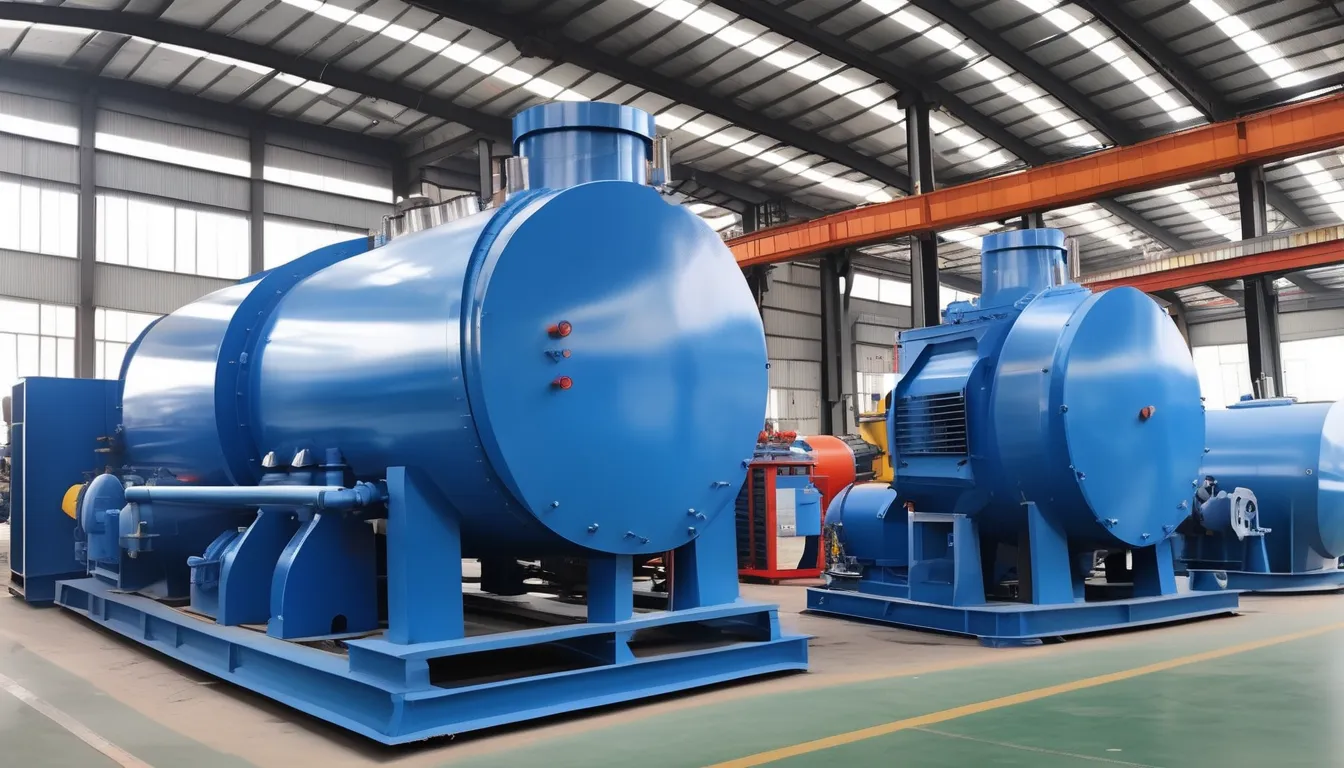When you consider the role of turbo expanders in industrial systems, you might start to see how they’re more than just components; they’re crucial for enhancing overall efficiency. By converting energy from gas expansion into mechanical power, these devices significantly lower fuel consumption and operational costs. You may wonder how this technology not only optimizes performance but also contributes to environmental sustainability. As we explore their mechanisms and applications, the implications for both economic and ecological outcomes become increasingly compelling. What happens when you integrate this technology into your operations?
Understanding Turbo Expanders
When you think about energy efficiency in industrial processes, turbo expanders often come to mind as vital components. These devices play a crucial role in optimizing energy use, particularly in systems that involve gas expansion and refrigeration cycles. By converting high-pressure gas into lower-pressure gas, they help harness energy that would otherwise be wasted, improving overall system performance.
Turbo expanders operate on the principle of extracting energy from a gas stream as it expands. This process not only lowers the temperature of the gas but also generates mechanical energy, which can be used to drive generators or compressors. Their ability to recover energy makes them essential in industries like oil and gas, chemical processing, and cryogenics.
You’ll find that turbo expanders come in various designs, each tailored for specific applications. Whether it’s a radial or axial type, these machines enhance efficiency and reduce operational costs.
Understanding how turbo expanders function and their importance in industrial systems can help you make informed decisions about energy use and investments in technology. Ultimately, their implementation can lead to significant savings and improved sustainability in your operations.
Mechanism of Energy Conversion
Turbo expanders harness energy during the gas expansion process through a well-defined mechanism. When high-pressure gas enters the expander, it experiences a drop in pressure and temperature. This rapid expansion transforms the thermal energy of the gas into mechanical energy.
As the gas flows through the rotor, it causes the blades to spin, converting this kinetic energy into rotational energy.
You’ll notice that the design of the turbo expander plays a crucial role in this energy conversion. The rotor’s speed and the geometry of the blades are optimized to maximize efficiency.
As the gas moves through the expander, it not only spins the rotor but also generates a significant amount of work that can be harnessed for various applications.
Moreover, the efficiency of this energy conversion can be influenced by factors like the inlet conditions, the type of gas, and the operating temperature.
By effectively managing these parameters, you can significantly boost the overall efficiency of your system.
Ultimately, understanding how energy conversion works within turbo expanders allows you to enhance performance and achieve better energy savings in your operations.
Applications in Industry
Efficiency is a key driver behind the growing adoption of turbo expanders across various industries.
You’ll find these devices used in natural gas processing, where they help to recover energy from high-pressure gas streams. By converting pressure drop into mechanical energy, Turbo Expander s enhance the overall efficiency of gas compression systems.
In the power generation sector, they play a vital role in combined cycle power plants. Here, they maximize energy recovery from exhaust gases, contributing to improved performance and reduced fuel consumption.
Moreover, in the refrigeration and cryogenic applications, turbo expanders are essential. They aid in the liquefaction of gases like oxygen or nitrogen, offering a more efficient way to cool gases down while simultaneously generating power.
The oil and gas industry also benefits significantly from turbo expanders. They’re used in various applications, including gas processing and LNG facilities, to optimize energy usage and minimize waste.
As industries continue to seek ways to improve energy efficiency and reduce operational costs, the adoption of turbo expanders is likely to grow, reinforcing their importance in modern industrial applications.
Benefits to System Efficiency
Over time, the integration of turbo expanders into various systems has proven to significantly boost overall performance.
These devices enhance system efficiency through several mechanisms, allowing your processes to run smoother and consume less energy.
When you implement turbo expanders, you can expect notable advantages that directly impact your operation.
- Energy Recovery: Turbo expanders capture energy from the expansion of gases, converting it into usable power.
- Reduced Operating Costs: By improving efficiency, you’ll lower fuel consumption and operating expenses.
- Enhanced Process Stability: Turbo expanders help regulate pressure and flow, leading to more consistent and reliable operations.
- Environmental Benefits: Increased efficiency translates to lower emissions, making your system more environmentally friendly.
Future Trends in Turbo Expansion
As industries increasingly prioritize sustainability and cost-effectiveness, the role of turbo expanders is evolving.
You’ll notice a shift toward integrating advanced materials and design technologies that enhance performance and durability. Innovations like additive manufacturing are leading to lighter and more efficient expanders, enabling better thermal management and increased efficiency.
Moreover, you can expect a growing focus on digital tools. Predictive maintenance and real-time monitoring using IoT technologies will become standard, allowing for optimized operation and less downtime.
This shift not only improves efficiency but also extends the lifespan of turbo expanders.
Another trend is the increasing adaptation of turbo expanders in renewable energy systems. As wind and solar energy continue to grow, you’ll find turbo expanders playing a vital role in energy storage solutions, converting excess energy into mechanical energy efficiently.
Conclusion
Incorporating turbo expanders into your system can significantly boost overall efficiency and reduce operational costs. By capturing energy from high-pressure gas expansion, they not only enhance performance but also help lower emissions, promoting sustainability. As industries continue to embrace these technologies, you’ll find that turbo expanders play a crucial role in optimizing energy recovery and ensuring smoother operations. Embracing this innovation now positions you for greater economic and ecological benefits in the future.

